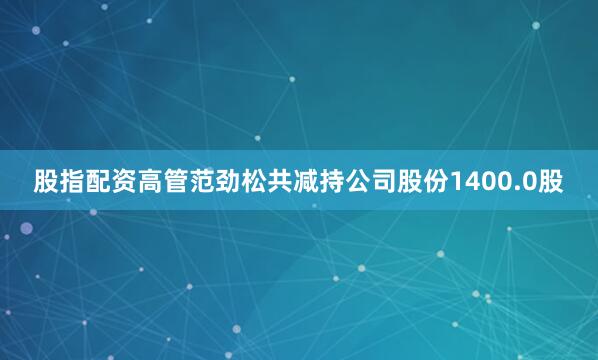
In 1964, as the \"Two Bombs, One Satellite\" project entered its final countdown, Zhang Aiping visited the missile base for an inspection.
Along the way, he noticed a few \"odd\" soldiers. After approaching and identifying them, his demeanor suddenly changed, and he erupted in anger. He demanded that the base commander come forward and explain the situation.
What had happened? Who were these soldiers?
展开剩余95%In the early 1960s, the deteriorating Sino-Soviet relations forced China to halt the Soviet-assisted nuclear weapons program. The Soviets withdrew all experts, technical blueprints, and ceased the supply of equipment and raw materials.
This meant that if the project were to continue, China would have to rely solely on its own resources. It would require substantial financial investment, face a shortage of skilled personnel, and deal with the lack of advanced technology.
Many voices suggested pausing the program, considering the country was still in its developmental phase. Resources were limited, and it would be imprudent to channel funds into an uncertain project. The central leadership also wrestled with the decision—should they abandon it?
In this critical moment, then-Foreign Minister Chen Yi made a statement: China must develop its atomic bomb, even if it meant sacrificing everything. He compared the new nation to a baby learning to walk, constantly watched by those who wished to stifle its growth. Only with an atomic bomb could China protect itself from foreign threats.
After careful deliberation, the central government decided to entrust Zhang Aiping with this critical responsibility. At the time, General Zhang was serving as the Deputy Chief of Staff, overseeing national defense industry and technology.
However, when Zhang first received the assignment, he had reservations. He told Chen Yi that he had no idea what an atomic bomb even looked like, only familiar with eggs and yams.
Despite his doubts, Chen Yi placed great trust in Zhang’s abilities and simply waved his hand dismissively, saying, \"Who is born knowing everything? If you don't understand, go learn.\"
Seeing the central leadership's determination, Zhang Aiping took on the weighty task, fully aware of its gravity. From that moment on, he immersed himself in learning like a new student, eager to master nuclear physics. He even directly visited nuclear scientist Zhu Guangya's office.
Upon seeing such a senior official, Zhu was initially nervous, immediately preparing to present his work notes. But Zhang Aiping quickly stopped him, stating, \"I am here to learn, not to hear a report.\"
Zhang Aiping, regardless of his high position, visited almost every grassroots unit, diligently learning and eventually grasping the principles of the atomic bomb.
By 1963, the development of nuclear weapons reached a critical stage. In preparation for the next phase, Beijing's nuclear research institute decided to move to the Gobi Desert. Upon hearing this, many felt apprehensive.
But Zhang Aiping, upon learning of the decision, wasted no time in addressing the concerns. He told his team, \"In life, there are two paths: one to be an official, and one to get things done. If you want to be an official, don't follow me. There's nothing here but the vast desert, and no office to hold. But if you're committed to achieving something great, then come with me.\"
Following his lead, both researchers and military personnel packed their bags and embarked on a grueling journey.
In the endless expanse of the Gobi Desert, summer proved the most unbearable. The team not only had to endure the intense heat but also the mental strain of isolation. Zhang Aiping, always attentive to his workers’ well-being, frequently encouraged them to keep pushing forward, assuring them that if they followed the scientific approach, success would be theirs. Should they fail, the responsibility would be his alone.
Remarkably, whenever Zhang was personally overseeing an operation, there were almost no failures. Some even dubbed him the \"Lucky General,\" though Zhang himself remained humble, attributing success to two key steps: getting into the trenches and performing meticulous inspections.
During major experimental projects, no matter how harsh the conditions, Zhang Aiping would always visit the site personally, inspecting even the smallest details—like every screw. On one occasion, while inspecting, he noticed a vague shadow on a monitor. The team assumed it was a malfunction, but Zhang insisted on a closer look, directing them to check the engine. After a thorough search, they discovered that a stray shoelace had been left inside.
Zhang Aiping was livid. \"If this shoelace prevents us from succeeding, all the funds invested, all the effort put in by everyone, will have been wasted!\" From that moment on, he set a new rule: anyone working on-site must remove their shoes before starting.
Beyond his focus on the work itself, Zhang Aiping showed great care for his staff. Concerned about their physical well-being in such harsh conditions, he often visited different units and military camps to inspect their living conditions, ensuring they had enough to eat and wear.
By the summer of 1964, with the \"Two Bombs, One Satellite\" project nearing its conclusion, everyone was working harder than ever, including Zhang Aiping, who began making frequent inspections at the base.
One afternoon, after completing a morning of inspections, Zhang was hot and hungry. He, along with a few staff members, went to the base’s service center for a meal and some rest. As they sat down, the meal was immediately served, and the staff began eating eagerly.
However, Zhang Aiping's chopsticks remained untouched as he gazed intently at a few soldiers sitting at a nearby empty table. The soldiers had arrived earlier but were still sitting there without eating. Zhang had noticed them before and thought little of it, but as time passed and his own group had begun eating, the soldiers still sat there looking in their direction.
Curious, Zhang Aiping stood up and walked over. Though the soldiers didn’t recognize him, they could tell from his age and bearing that he was an important figure. They quickly stood and saluted him.
Zhang Aiping returned the salute and asked if they were stationed at a nearby post. He had spotted the military satchels they were carrying and deduced they had been on duty and traveled a long distance to reach the service center, where they had hoped to rest and eat. Unfortunately, all the food had been used up, and there was nothing left for them.
Feeling sympathy for their weary and hungry state, Zhang Aiping's anger flared. \"I want the base commander here now to explain this!\"
Moments later, the base commander appeared. Zhang immediately began chastising him, \"How is it that these soldiers are hungry while others who arrived later get to eat? What’s going on with logistics here?\"
The base commander quickly explained that there had been an influx of personnel recently, and the food supplies had run low. They had reserved a meal for the senior officials, leaving nothing for others.
Zhang Aiping, still upset, replied, \"This isn't a one-time problem. These soldiers’ needs must be addressed immediately!\" He then ordered the canteen to prepare meals for the soldiers and allowed them to rest in the party's meeting room before they returned to their posts.
That afternoon, Zhang Aiping convened a meeting with all the leaders, making arrangements to ensure that the soldiers’ food, rest, and supplies were adequately handled.
Years later, veterans who had been there recalled how Zhang Aiping had always been a leader who truly cared for the soldiers, treating them like his own children. His deep compassion for his troops earned him their everlasting gratitude.
发布于:天津市炒股配资10倍平台提示:文章来自网络,不代表本站观点。







